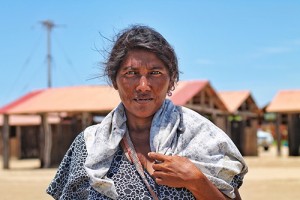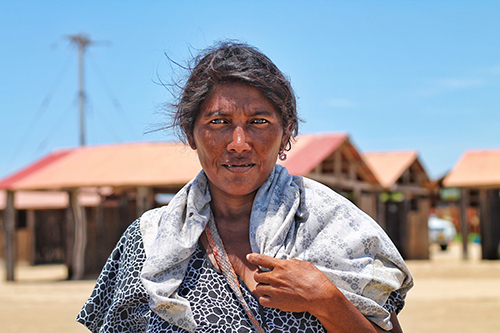
Gender in Peace Agreements: Lessons from Colombia
Women have had various roles during the armed conflict in Colombia, which makes the implementation of the peace agreement and ensuring a gender-sensitive approach not less challenging. Women made up around 30 % of the FARC fighters actively involved in the armed conflict, but they were also highly affected by violence. Rape, torture, and killings within their families have regularly taken place. Colombian women fight for getting recognition as victims of the armed conflict and they fight for knowing where their disappeared family members are and what happened to them. The number of internally displaced persons (IDPs), standing at more than 7 mln., is among the highest in the world, often putting women in precarious situations.
The Colombian Peace Agreement – a role model?
The Colombian peace agreement is considered to be the first peace agreement in the world that is comprehensively gender-sensitive. The increased participation of women in the process itself and in all commissions and bodies created to implement the peace accords led to the inclusion of more than 100 gender-related measures in the peace agreement. Demobilization, disarmament and reintegration of male and female former guerilla fighters and ensuring the implementation of the peace agreement in a broader sense is obviously challenging for Colombia. Moreover, the society has been highly divided over the peace agreement, in particular about two issues: impunity and reparation payments for former FARC fighters and LGBT/gender aspects included in the initial version of the peace agreement that was rejected in a referendum. While the modified agreement embraces more traditional ideas on womanhood, it is nerverheless a step forward for the UN-Agenda on Women, Peace and Security.
Why should the German Government care?
In 2019-2020, Germany will serve as a member of the UN Security Council. The German Government has declared the implementation of UNSCR 1325 a main aim for its Security Council membership. The year 2020 also marks the 20th anniversary of UN Security Council Resolution 1325 and the launch of the Agenda on Women, Peace and Security, which provides a great opportunity for Germany to present fresh ideas on how the Agenda could be developed further. The Colombian case provides excellent lessons on designing gender-sensitive peace processes.
Our Activities
- We published a Polis Brief on the matter in English and Spanish. Read it here!
- We published a podcast episode that reviews some of the issues discussed in the Brief. Tune in!
- We organized events in Hamburg (11 February 2019) and Berlin (12 February 2019) to discuss our findings with a wider audience. Our guests included representatives from the Federal Foreign Office, the German Institute for Global and Area Studies (GIGA), the Center for International Peace Operations (Zif), and Freie Universität Berlin’s Institute for Latin American Studies.
Project team

Sonja Schiffers is co-president of Polis180 and co-head of Polis‘ program area Gender and International Politics. Sonja is a visiting fellow at the German Institute for International and Security Affairs and a PhD Candidate at Freie Universität Berlin. She is also a member of the Advisory Board to the German Government for Civilian Crisis Prevention and Peace Building.

Silvia Rojas-Castro is a Colombian lawyer with an M.A. in Public Economics, Law, and Politics from Leuphana University of Lüneburg. She has worked as women’s rights researcher in Colombia, particularly on the improvement of the investigation and prosecution of sexual violence against women in the armed conflict. In Germany, she has done research at the German Institute for Global and Area Studies on the freedom of association and the diffusion of authoritarianism.
Project term
15.11.2018-15.03.2019
The project was implemented with support from the Federal Foreign Office.
